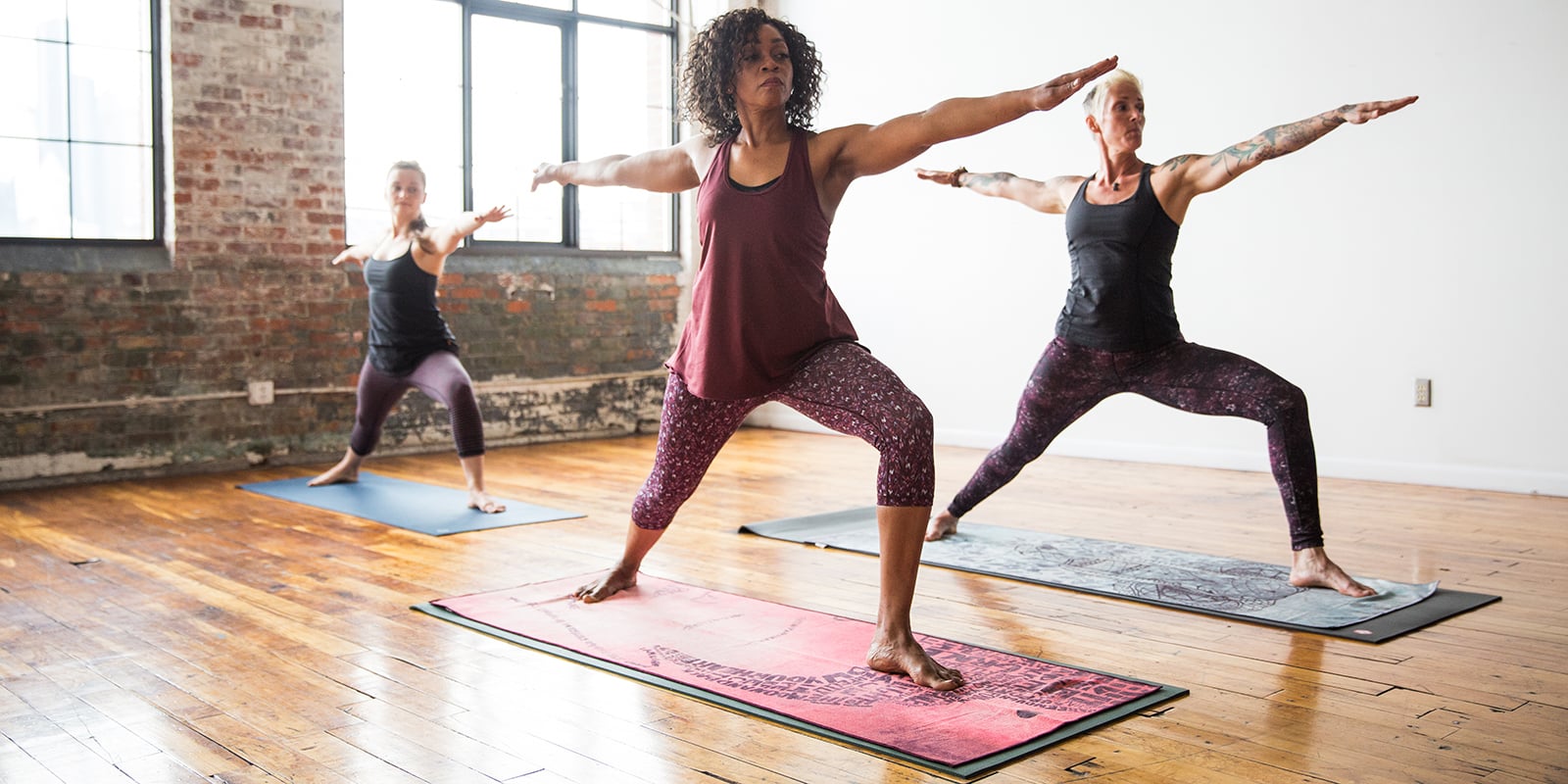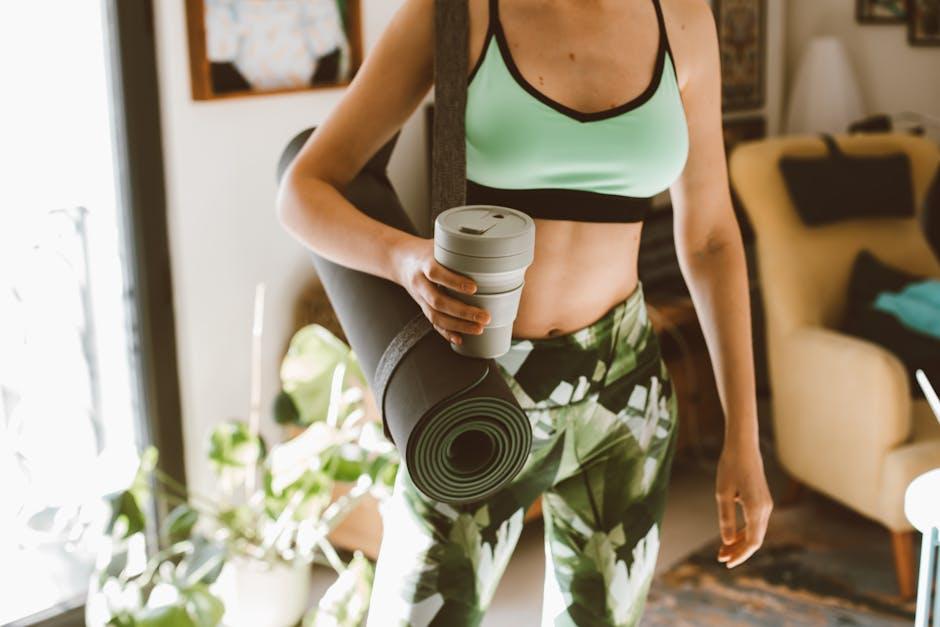In a world increasingly driven by the pursuit of sustainability, practitioners of yoga are discovering that their journey towards balance and well-being extends beyond their mat — it permeates the very tools they use. As awareness of environmental issues grows, the demand for sustainable yoga gear is reshaping how we approach our practice. From mats made from natural rubber to blocks crafted from sustainably sourced materials, the options available have evolved, allowing yogis to align their values with their routine.This article explores the exciting landscape of sustainable yoga gear, focusing on mats, blocks, and straps designed for the eco-conscious practitioner. Join us as we delve into the benefits of choosing greener alternatives, highlighting innovative brands and emphasizing the importance of making mindful choices for both our personal well-being and the planet. whether you’re a seasoned yogi or just beginning your journey, find out how you can harmonize your practice with a commitment to sustainability.
Exploring Eco-Friendly Yoga Mats for Every Practice Style
when it comes to finding the perfect yoga mat that aligns with your eco-conscious values, the options are as diverse as the yoga practices themselves. Consider mats made from renewable materials like natural rubber, which delivers excellent grip and cushioning for flow classes, or cork, known for its antimicrobial properties and sleek appearance.Additionally, mats constructed from recycled materials not only support sustainability but also offer unique textures and durability that cater to yin and restorative practices, ensuring comfort throughout your session.
With the increasing awareness of our environmental impact, many brands are stepping up to provide a variety of styles suitable for different practices. Hear’s a speedy comparison of popular eco-friendly mats:
| Material | Best For | Eco-Friendly Features |
|---|---|---|
| Natural Rubber | hot Yoga | Biodegradable, sustainably sourced |
| Cork | Gentle/Floor work | Renewable, reduces mold/bacteria |
| Thermoplastic Elastomer (TPE) | Everyday Practice | Recyclable, free of harmful chemicals |
Whether you’re a vinyasa enthusiast or a meditation devotee, there’s a mat that will not only enhance your practice but also honor the planet. By selecting eco-friendly options, you contribute to a lifestyle that embraces sustainability while still providing the comfort and support you need during your yoga journey.

Choosing Biodegradable Blocks for Enhanced Support and Sustainability
When selecting yoga blocks, opting for biodegradable options aligns your practice with eco-friendly values while providing the support you need.These blocks are crafted from materials like cork, bamboo, or natural rubber, allowing for a sustainable alternative to customary foam blocks. By choosing biodegradable blocks, you not only enhance your physical yoga practice but also contribute to the larger goal of reducing plastic waste and minimizing your environmental footprint.
Consider the following benefits of incorporating biodegradable blocks into your routine:
- Environmental Impact: Made from renewable resources that decompose naturally, these blocks help combat pollution.
- Stability and Support: Materials like cork offer superior grip and firmness, essential for maintaining balance in various poses.
- Durability: These sustainable blocks are built to endure intensive use while declining in environmental impact.
- Aesthetic Appeal: Natural materials add a warm and earthy touch to your yoga space.
To help you choose the right biodegradable block, here’s a simple comparison of popular options:
| Material | Weight | Texture | Price Range |
|---|---|---|---|
| Cork | Lightweight | Natural grain | $15-$25 |
| Bamboo | Medium weight | Smooth finish | $20-$30 |
| Natural Rubber | Heavier | Textured grip | $25-$35 |
Incorporating biodegradable blocks into your practice not only promotes environmental stewardship but also enhances your yoga experience.with options available in various materials and price ranges, you can make a choice that fits both your practice and your values.

The Essentials of Eco-Conscious Straps: Material Matters
When selecting eco-conscious straps for your yoga practice, the material plays a pivotal role in ensuring sustainability without compromising on performance. Straps made from organic cotton, hemp, or recycled polyester not only provide the strength and durability needed for various poses but also contribute to a healthier planet. Organic cotton is cultivated without the use of synthetic pesticides and fertilizers, making it a safer option for both the environment and your skin. Hemp, known for its natural resilience and biodegradable properties, offers a sustainable choice that gets softer with every wash, enhancing both comfort and longevity. Recycled polyester, derived from plastic waste, helps reduce environmental impact by keeping materials out of landfills while providing necessary support during your practice.
Choosing the right strap material can also make a meaningful difference in your overall yoga experience. Here’s a simple comparison of the most popular eco-friendly strap materials:
| Material | Benefits | Considerations |
|---|---|---|
| Organic Cotton | soft, breathable, and chemical-free | May require more frequent washing |
| Hemp | Strong, durable, and naturally antibacterial | Initial stiffness that softens over time |
| Recycled Polyester | Lightweight, moisture-wicking, and eco-friendly | Not biodegradable; depends on recycling systems |

Balancing comfort and Responsibility in Your Yoga Gear Collection
When curating your collection of yoga gear, it’s essential to find that sweet spot between personal comfort and environmental responsibility. Choosing mats, blocks, and straps crafted from organic or recycled materials not only supports your practice but also aligns with a more sustainable lifestyle. For instance, opting for a natural rubber mat provides superior grip and cushioning while being biodegradable.Here are some factors to consider when selecting your gear:
- Material Matters: Look for eco-friendly materials like cork, bamboo, and organic cotton.
- Durability: High-quality sustainable products may cost more upfront but reduce waste over time.
- Manufacturing Practices: Research brands that prioritize ethical production processes.
Balancing comfort with eco-conscious choices is also about understanding how each piece of gear enhances your practice. A supportive cork block can make a world of difference in your alignment, while a strap made from recycled polyester can assist your stretches without harming the planet. It’s vital to evaluate the lifecycle of each product and how they contribute to both your physical experience and the overall health of the environment. Consider the following criteria when adding to your collection:
| gear Type | eco-Friendly Material | Comfort Features |
|---|---|---|
| Yoga mat | Natural Rubber | Excellent Grip & Cushioning |
| yoga Block | Cork | Sturdy & Lightweight |
| Yoga Strap | Recycled Polyester | Adjustable Length |
To Wrap It Up
As we conclude our exploration of sustainable yoga gear, it becomes clear that every choice we make on our mat can have a positive ripple effect beyond our practice. By opting for eco-conscious mats, blocks, and straps, we not only enhance our personal journey but also contribute to a healthier planet. Each mindful purchase serves as a reminder that sustainability is a practice,much like yoga itself—requiring intention,commitment,and a balance between self-care and care for the world around us. As you roll out your eco-friendly mat for your next session, take a moment to breathe in deeply and appreciate the impact of your choices. With each pose and breath, let your practice be a testament to harmony, both within and with the Earth, guiding you toward a more sustainable future. Embrace the connection, cultivate awareness, and let your eco-conscious practice inspire others on their own journeys towards sustainability.




